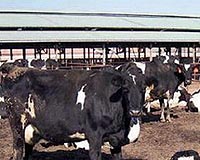 |
Washington DC (SPX) Apr 5, 2011 Biological invasions get less prime-time coverage than natural disasters, but may be more economically damaging and warrant corresponding investments in preparedness and response planning, according to three biologists writing in the April issue of BioScience. Anthony Ricciardi of McGill University and his coauthors point out that species invasions are becoming more frequent worldwide, largely because of international trade. Although many alien species establish themselves in a new location without causing harm, the worst biological invasions may cause multiple extinctions of native species, as when the Nile perch invaded Lake Victoria and contributed to the extinction of 200 fish species. Biological invasions can also be hugely expensive: the destruction of ash trees by the emerald ash borer is projected to cost the United States $10 billion over the coming decade. Like natural disasters, biological invasions are hard to predict and extremely difficult to control once they get under way. And like catastrophic events in high-tech industries, invasions are usually inevitable and can cause problems through unexpected interactions, as when floating mats of algae caused by invasions of freshwater mussels led to several emergency shutdowns of a nuclear reactor in New York State in 2007. Yet despite being slower in their onset, invasions have more persistent impacts and a greater scope of ecological and economic damage. Hazard-reduction plans could minimize the impacts of biological invasions, the researchers argue, and at a cost that is low relative to the cost of a major event. Vulnerability reduction practices, rapid response and assessment, and systems for sharing of information and coordination among authorities are all potentially beneficial. New Zealand has passed legislation to coordinate management of threats to its biodiversity and natural resources under a central authority, but other countries have yet to follow its lead.
Share This Article With Planet Earth
Related Links American Institute of Biological Sciences Farming Today - Suppliers and Technology
 Half China's dairies shut in safety audit: govt
Half China's dairies shut in safety audit: govtBeijing (AFP) April 2, 2011 Nearly half of Chinese dairies inspected in a government safety audit have been ordered to stop production, a spokesman said on Saturday. The move follows the 2008 baby milk health scandal, in which Chinese authorities said at least six babies died and another 300,000 were sickened. China's dairy industry was rocked that year by revelations that the industrial chemical melamine was added ... read more |
|
| The content herein, unless otherwise known to be public domain, are Copyright 1995-2010 - SpaceDaily. AFP and UPI Wire Stories are copyright Agence France-Presse and United Press International. ESA Portal Reports are copyright European Space Agency. All NASA sourced material is public domain. Additional copyrights may apply in whole or part to other bona fide parties. Advertising does not imply endorsement,agreement or approval of any opinions, statements or information provided by SpaceDaily on any Web page published or hosted by SpaceDaily. Privacy Statement |